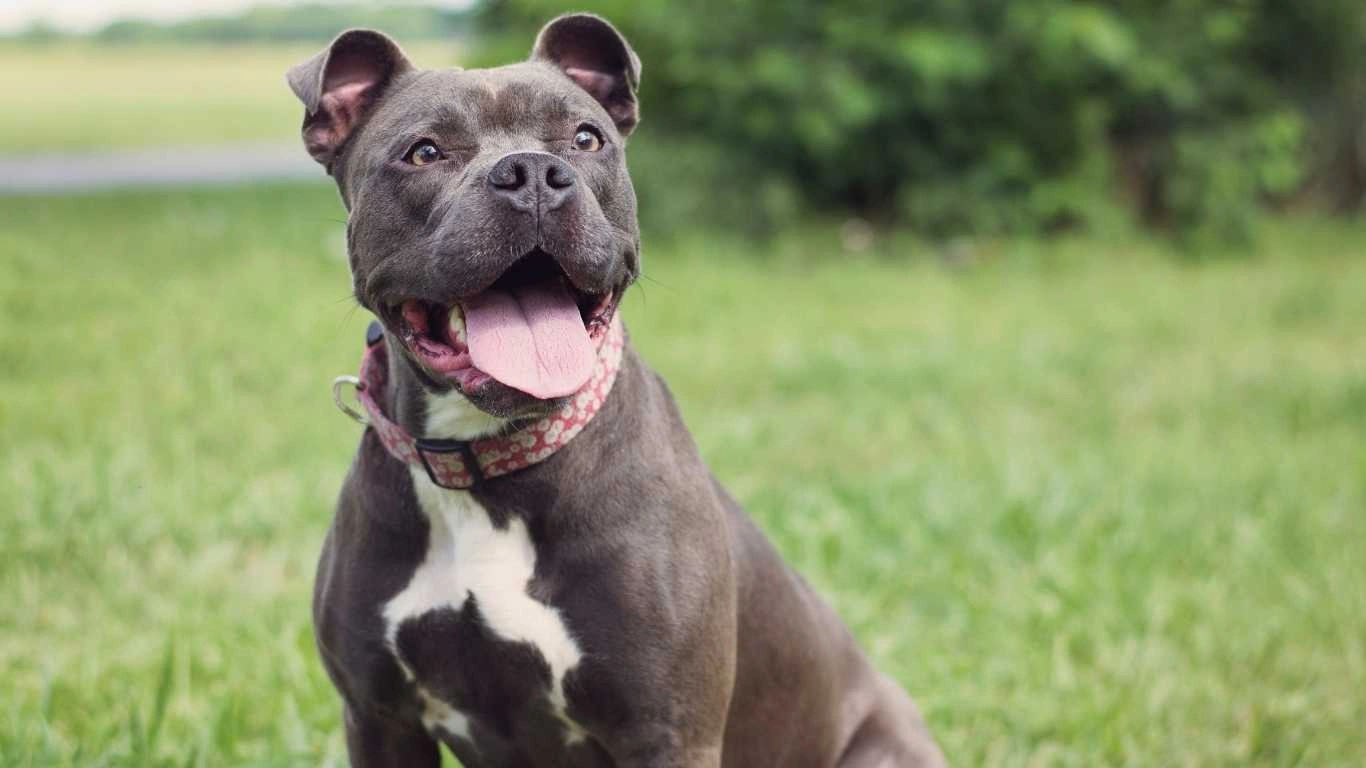Best Evening Meals for Dogs That Truly Improve Sleep
If you’ve ever sat there at 9PM wondering what kind of dinner will help your dog sleep better, you’re not alone. As someone who’s worked closely with pups as an Animal Care Specialist in both pet clinics and shelters, I’ve learned that the best evening meals for dogs for restful sleep aren’t just about keeping their bellies full—they’re about promoting calm, digestion, and a good night’s rest. And let me tell you, the difference a proper evening meal makes? It’s honestly like night and day—literally. Whether you’ve got a hyper Labrador or a senior schnauzer who needs all the sleep they can get, this guide’s got you covered with real talk, practical tips, and meals that have passed the “happy tail wag test.”
Why Evening Meals Matter for a Dog’s Sleep

Most dog owners focus on morning meals and training treats, but dinner often gets overlooked—and that’s a big miss. Your pup’s evening meal sets the tone for their overnight digestion and energy levels. From my hands-on experience working with dogs of all breeds and temperaments, I’ve seen how switching up a dog’s dinnertime menu can transform a restless night into peaceful snoozing. Think of it like prepping your dog for bedtime: the food they eat should be warm, calming, and easy on their stomach.
How Food Impacts Sleep Cycles in Dogs
Just like us, dogs can experience discomfort or disrupted sleep if they eat too late or have something heavy sitting in their belly. I once fostered a Border Collie who couldn’t sleep for more than 30 minutes at a time until we started offering him a warm, protein-balanced meal a few hours before bed. The change? He began sleeping like a rock—ears twitching and all!
- Carbs like sweet potatoes or brown rice help release serotonin—yep, the calming hormone!
- Proteins like turkey or lean chicken support muscle repair during sleep.
- Herbs like chamomile or a sprinkle of parsley can soothe the gut and mind.
Signs Your Dog Isn’t Sleeping Well

We sometimes think dogs sleep “anytime, anywhere,” but if you notice any of the following, it might be time to rethink dinner:
- They pace around the house after dark
- They wake up frequently to drink water or go potty
- You hear them whining or scratching at night
- They seem sluggish or cranky in the morning (yes, dogs get grumpy too!)
When I worked at the shelter, we had one senior Labrador mix named Daisy. She had been returned twice due to “night barking.” After adjusting her dinner to include a mix of oats, lean beef, and steamed pumpkin, the barking completely stopped. It was just her stomach being upset! A simple mealtime tweak turned her into the sweetest little sleeper.
Ideal Mealtime: When Should Dogs Eat Dinner?
Based on what I’ve seen with rescue dogs and in private pet clinics, the sweet spot is about 2–3 hours before lights out. That gives them enough time to digest without getting hungry again overnight. If you’re feeding once daily (which some older or less active dogs prefer), just make sure it’s not too late.
Top Ingredients in the Best Evening Meals for Dogs for Restful Sleep

When building your dog’s sleepy-time dinner bowl, you’ll want a blend of protein, complex carbs, and calming nutrients. Here are my personal go-to ingredients after years of trial, error, and plenty of empty bowls:
- Lean turkey: High in tryptophan, helps with relaxation
- Brown rice: Gentle on the stomach, fills them up without bloating
- Pumpkin: Natural fiber, great for digestion
- Chamomile tea (cooled): A little splash in their food does wonders
- Oats: Slow-release energy and calming effect
Of course, always check with your vet if your pup has allergies or digestive issues. But generally, these are safe bets and have worked beautifully with dozens of dogs I’ve cared for. And they’re so simple to prepare—most are ingredients you probably already have in your kitchen.
Homemade Recipes for the Best Evening Meals for Dogs for Restful Sleep

Let’s be honest—sometimes the best meals come from your own kitchen. I’ve whipped up more late-night doggy dinners than I can count, and honestly, it’s easier (and cheaper) than most people think. Plus, you get full control over the ingredients. And when you see your pup curled up, snoring softly after dinner? Totally worth it.
Here are a couple of simple, vet-approved recipes I’ve used regularly in my animal care work. These are designed to be gentle, filling, and ideal for winding down.
1. Turkey & Pumpkin Sleepy Bowl
- 1/2 cup ground turkey (cooked, no seasoning)
- 1/4 cup brown rice (cooked)
- 2 tablespoons canned pumpkin (plain, not pie filling)
- 1 teaspoon olive oil
Mix everything while warm and let it cool slightly before serving. This combo is high in protein, easy to digest, and full of calming nutrients. Bonus: pumpkin helps with regular bowel movements.
2. Oatmeal & Chamomile Mash
- 1/2 cup plain oats (cooked in water)
- 1 boiled egg (chopped)
- 1 splash of cooled chamomile tea
- A pinch of fresh parsley (optional)
This one’s perfect for dogs with sensitive tummies or older pups. I used to make this for a senior Beagle in our shelter named Max. He had digestive issues and anxiety, and this meal worked like a charm before bedtime. He actually used to fall asleep while licking the bowl.
Store-Bought Options That Actually Work

Not everyone has time to cook every night—totally fair. There are a few commercial brands that offer solid nighttime-friendly meals. Look for formulas that promote digestive health and include calming ingredients like turkey, oats, or flaxseed.
From my hands-on experience and feedback from pet parents at the clinic, these brands are consistent winners for evening meals:
- The Honest Kitchen – Their turkey & pumpkin blend is great for winding down.
- Wellness CORE Digestive Health – Super gentle on the belly, with probiotics.
- JustFoodForDogs – They offer a calming blend with sweet potato and lean meats.
Always read the ingredients. Avoid anything loaded with artificial colors, excess sodium, or vague “meat meals.” If you wouldn’t eat it, your dog probably shouldn’t either (within reason, of course—I’m not saying you should try kibble!).
Feeding Tips from the Shelter Floor
Over the years, I’ve worked with hundreds of dogs, and there are a few feeding tricks that seem to work across the board. These little changes can make a big difference in how well your dog sleeps:
- Warm up the food slightly – Just a few seconds in the microwave helps boost aroma and comfort.
- Keep the environment calm – Feed away from loud noise or busy rooms.
- Add a bedtime routine – After dinner, go for a short potty walk, dim the lights, and let your dog wind down just like we do.
And remember, your dog can pick up on your mood. If you’re relaxed during dinner time, it sets the tone. In the shelter, we used to dim the lights and play soft music at night—it wasn’t just for the dogs, honestly. It helped us too!
Common Mistakes That Disrupt Canine Sleep

Even with the best intentions, there are a few things that can mess up your pup’s night rest. I’ve made these mistakes myself, especially early in my career. But knowing better is doing better.
Too Late or Too Heavy
If you feed your dog right before bed—or give them a meal that’s too rich—it can cause bloating or discomfort. One time I made the mistake of giving a German Shepherd a high-fat treat before lights out. He ended up pacing all night and had some… let’s just say unpleasant digestive surprises the next morning. Lesson learned.
Feeding Table Scraps
We love to spoil them, but human food (especially leftovers from dinner) can throw off their system. Things like garlic, onions, and spices aren’t just upsetting—they can be toxic. If you do share a bite, keep it plain and tiny.
No Consistent Schedule
Dogs thrive on routine. Skipping meals, feeding at random times, or switching up their food constantly? That can mess with their digestion and their sleep cycles. Try to feed around the same time each evening, and stick to foods that work.
Every dog is different, of course, and what works for a sleepy golden retriever might not be perfect for an anxious terrier. But from my years in the field, I can tell you—when you dial in their dinner, their sleep (and yours) improves almost overnight.
How Breed, Age, and Health Affect the Best Evening Meals for Dogs for Restful Sleep

One thing I’ve learned working hands-on in shelters and clinics is that there’s no such thing as a one-size-fits-all solution—especially when it comes to food. The best evening meals for dogs for restful sleep depend a lot on your dog’s breed, age, and health condition. What knocks out one pup for a solid night of snoozing might leave another tossing and turning.
Small Breeds vs. Large Breeds
Smaller breeds like Chihuahuas or Yorkies tend to have faster metabolisms, so they may benefit from slightly higher-calorie evening meals—especially if they’re super active. On the flip side, large breeds like Labs or Great Danes usually do better with lower-fat, easily digestible meals to avoid issues like bloating (which can be serious).
I remember a massive Great Pyrenees named Walter—lovable guy, total couch potato. He would get a light turkey-and-rice dinner around 6 PM and sleep like a log. But if we gave him even a bite of fatty beef? Cue restlessness and indigestion.
Puppies vs. Seniors
- Puppies: They need more frequent meals, often including dinner and a bedtime snack. Opt for soft proteins and calorie-dense ingredients like oats and pumpkin.
- Senior dogs: Gentle, high-fiber foods that support joint and digestive health are key. Avoid anything too rich. A mix of boiled egg, brown rice, and a little salmon oil can do wonders.
Health Conditions to Consider
If your dog has specific health conditions—like pancreatitis, kidney disease, or food allergies—you’ll definitely want to talk to your vet before tweaking their evening meal. In my time working with dogs on special diets, I’ve seen firsthand how quickly a well-tailored meal plan can change everything. Even just switching to a renal-friendly wet food helped one husky finally start sleeping through the night again without discomfort.
Nighttime Snacks That Won’t Disrupt Sleep

If you’re the kind of pet parent who likes to offer a little bedtime snack (no judgment—I’m guilty too), the good news is there are plenty of options that won’t sabotage sleep. The trick is keeping them small, light, and calming.
Gwenna’s Go-To Nighttime Treat Ideas
- Frozen banana & plain yogurt bites: Just blend and freeze in silicone molds—great for summer nights!
- Chamomile biscuit: Look for calming dog treats with natural herbs like valerian or chamomile.
- Plain rice cake piece: Super light, and dogs love the crunch. No salt, no flavoring.
Honestly, sometimes the act of a small, predictable snack is comforting in itself. In shelters, we often gave nervous dogs a small biscuit right before bedtime to settle them. It gave them something to look forward to and created a comforting routine.
Final Thoughts on Creating a Sleep-Friendly Feeding Routine
At the end of the day, what you feed your dog in the evening and how you serve it can make a bigger difference than most folks realize. From my years as an Animal Care Specialist, I can say this with total confidence: consistent routines, gentle ingredients, and a little attention to timing can transform your pup’s nighttime experience.
Here’s a quick wrap-up to keep in mind:
- Feed 2–3 hours before bedtime to allow for digestion
- Keep meals light, warm, and made with calming ingredients
- Match meals to your dog’s age, breed, and health needs
- Create a predictable evening ritual with feeding, a walk, and wind-down time
And above all, pay attention to what your dog’s body is telling you. Are they pacing? Whining? Sleeping like an angel? Their behavior will let you know if you’ve found the right formula.
References
- American Veterinary Medical Association
- PetMD
- American Kennel Club
- Cornell University College of Veterinary Medicine
Disclaimer
This article is based on my professional experience as an Animal Care Specialist and is intended for informational purposes only. Always consult with your veterinarian before making any changes to your dog’s diet, especially if they have underlying health conditions.






